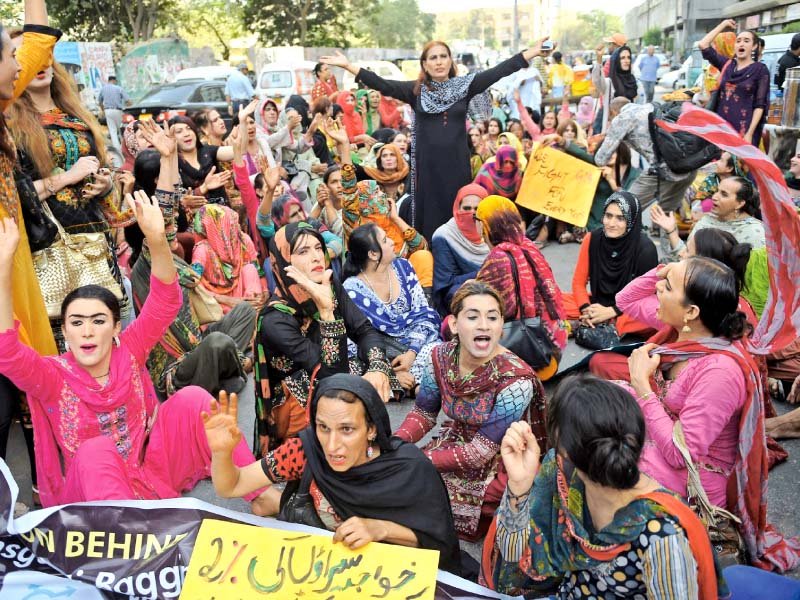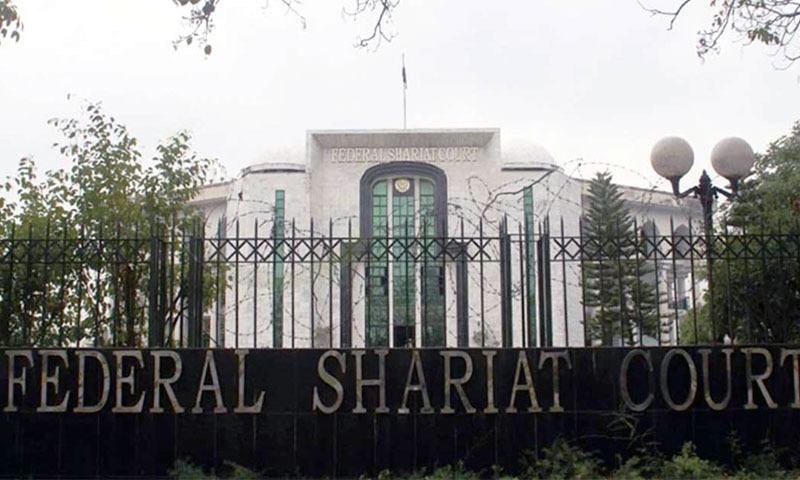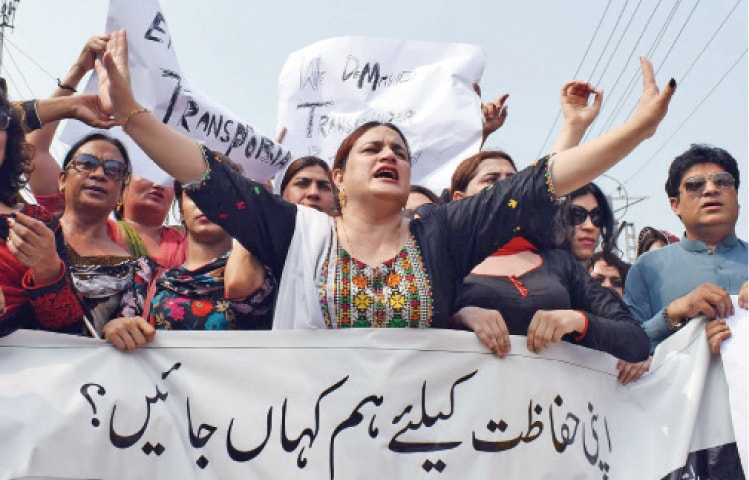An advocate for a transgender person argued before the Federal Shariat Court on Thursday that the Transgender Persons (Protection of Rights) Act 2018 does not violate Islam’s injunctions or encourage gay rights in Pakistan.
Professor and transgender representative, Aisha Mughal, submitted a response through her attorney Asad Jamal, disputing the petitioners’ claims as frivolous and malicious. [This is] an obvious attempt to abuse the constitutional jurisdiction of the court and an attempt to make the law controversial, Mughal maintained in her reply.



Headed by Chief Justice Muhammad Noor Meskanzai, the FSC had taken up a Shariat petition moved by Hammad Hussain and Muhammad Irfan Khan challenging the act for being against Islam. The FSC assumed its jurisdiction in the exercise of power under Article 203-D of the Constitution.
Keeping in view the importance of the law, the FSC had at the last hearing on Oct 27, 2021, passed an order that any person, whosoever intends to become a party in the case, may implead in the matter.



The court had also allowed TV anchor Orya Maqbool Jan, Bubbly Malik, and Mughal to become parties in these petitions by arraying them as petitioners in the Shariat petition.
On Thursday, the FSC rejected a reply furnished on behalf of the Ministry of Human Rights and directed the DG Human Rights to appear before the court on Friday to state the ministry’s stance in clear terms. The court observed that in case the court was not satisfied, it may even summon the minister or secretary concerned.
Shedding light on the petition:
In his petition, Hussain had pleaded before the FSC that the act was providing legal recognition to gay and lesbian rights in the name of transgender rights.



The petition maintained that the legislature intentionally or unintentionally committed blunders since the definition of a transgender person was not limited to real transgenders but also included lesbians and gays.
The petitioner had pleaded before the FSC to declare sections 2(n) and 3(1) of the law as repugnant to the injunctions of Islam. Mughal responded to the petition by denying that the law under challenge – especially Sections 2(n) and 3(1) of the 2018 act – was designed to help register same-sex marriages.
Referring to Hussain’s petition, Mughal’s reply contended that the petitioner had challenged a duly passed law by parliament merely on the basis of his personal fears and apprehensions rather than on the basis of recognized directly relevant injunctions of Islam.
Story Courtesy: Dawn News
Read More: What Does It Mean To Be A Homosexual In Pakistan? Find Out!
What do you think of this story? Let us know in the comments section below.


















